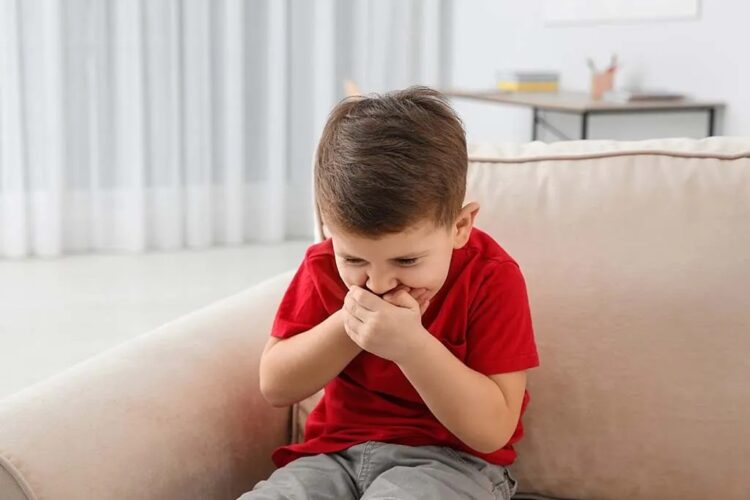As a parent, it can be distressing to see your child vomit. Children vomiting is not uncommon, and there can be many reasons why it happens. In most cases, vomiting is not a serious issue and can be treated at home with some simple remedies.
However, it is important to understand the common causes and warning signs of vomiting in children to ensure that your child receives the appropriate care.
Common Causes of Vomiting in Children
- Gastroenteritis, commonly known as the stomach flu, is one of the most common causes of vomiting in children. It is caused by a viral or bacterial infection in the stomach and intestines. Symptoms of gastroenteritis include vomiting, diarrhea, and stomach pain.
- Motion sickness. Children can experience motion sickness when traveling in a car, plane, or boat. This can cause nausea, vomiting, and dizziness.
- Food poisoning. Eating contaminated food can cause food poisoning, which can lead to vomiting, diarrhea, and stomach pain.
- Acid reflux. Acid reflux occurs when stomach acid flows back up into the esophagus. This can cause vomiting, heartburn, and stomach pain.
- Infections such as ear infections, sinus infections, and strep throat can cause vomiting in children.
Home Remedies for Children Vomiting
In most cases, vomiting in children can be treated at home with some simple remedies. Here are some home remedies that can help alleviate vomiting in children:
- Encourage your child to rest and avoid any physical activity until they feel better.
- It is essential to keep your child hydrated by giving them plenty of fluids like water, clear soups, or oral rehydration solutions.
- BRAT diet. The BRAT diet (bananas, rice, applesauce, and toast) is a bland diet recommended for children experiencing vomiting or diarrhea. These foods are easy to digest and can help alleviate nausea.
- Probiotics are beneficial bacteria that live in our gut and can help restore the balance of good bacteria in the gut. You can give your child probiotic supplements or foods like yogurt to help alleviate vomiting.
When to Seek Medical Attention
While most cases of vomiting in children can be treated at home, there are some instances where medical attention is necessary. If your child is experiencing any of the warning signs mentioned below, it may indicate a more serious underlying condition. You should then seek medical attention immediately.
- If your child is vomiting frequently and is not able to keep fluids down, they may become dehydrated. Signs of dehydration include dry mouth, sunken eyes, and decreased urine output.
- Blood in vomit. If your child’s vomit contains blood, it may be a sign of a more serious condition such as an ulcer or inflammation of the stomach lining.
- Severe abdominal pain. If your child also experiences severe abdominal pain, it may be a sign of appendicitis or another serious condition.
- High fever. If your child has a high fever that accompanies the vomiting, it may be a sign of a viral or bacterial infection that requires medical attention.
Additionally, if your child is experiencing severe vomiting that lasts for more than 24 hours or shows no signs of improvement, it is important to seek medical attention.
Conclusion
Vomiting in children can be caused by various factors, including infections, motion sickness, and food poisoning. While vomiting is usually not a serious issue, it is important to understand the common causes and warning signs to ensure that your child receives the appropriate care.
Home remedies like rest, hydration, and the BRAT diet can help alleviate vomiting in children. However, if your child experiences any of the warning signs or severe vomiting, seek medical attention immediately.
Remember, prevention is better than cure, so make sure to encourage your child to practice good hygiene habits like washing their hands regularly to prevent infections that can cause vomiting.

